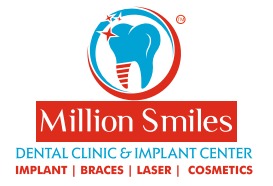Sterilization in Dentistry: Ensuring Patient Safety and Infection Control
Sterilization
Sterilization is one of the most critical aspects of modern dental practice. At clinics like Million Smiles Dental Clinic, ensuring a sterile environment not only safeguards the health of patients and staff but also prevents the spread of infections. This article delves into the importance of sterilization in dentistry, the processes involved, and how it contributes to overall patient safety.
